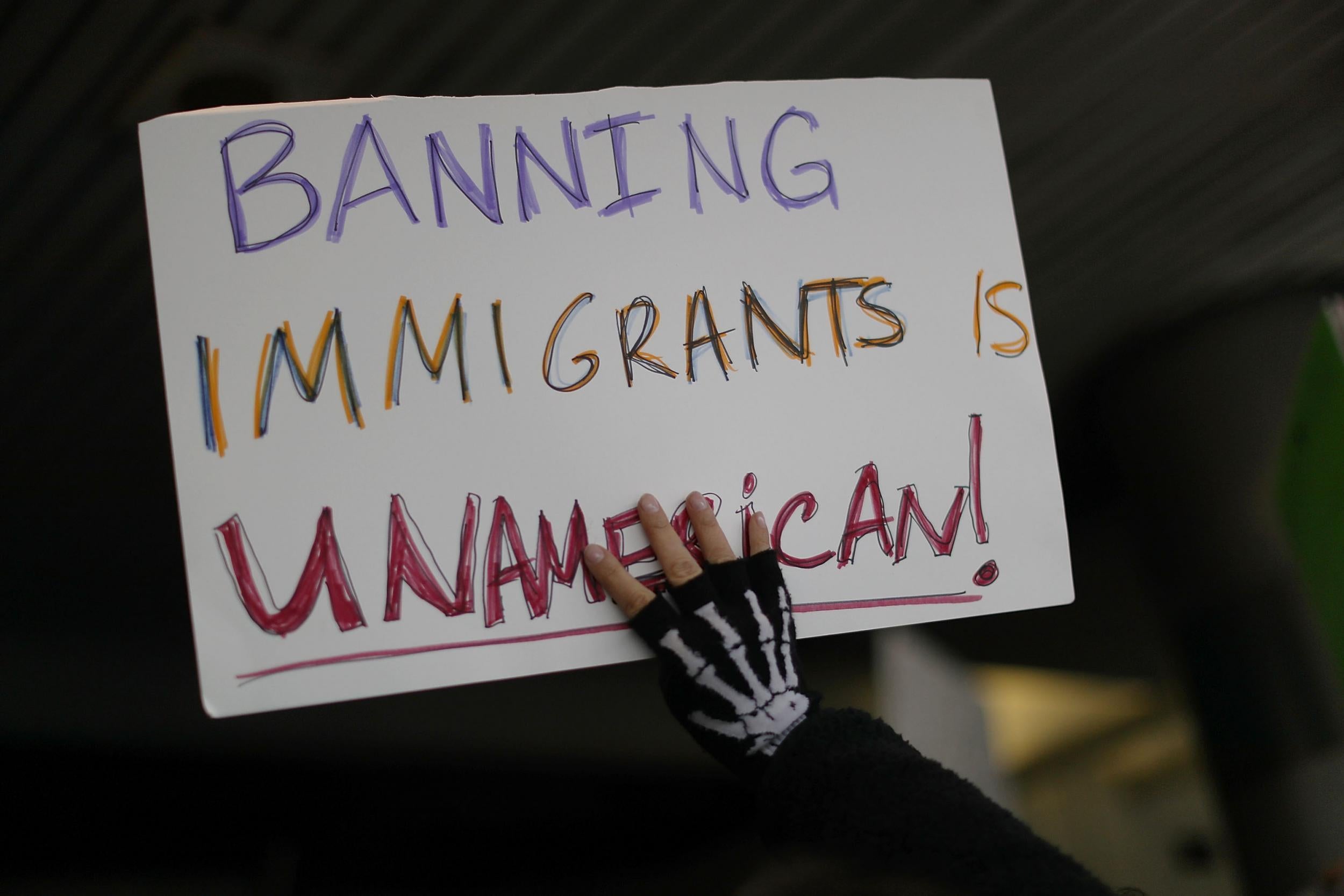Trump's travel ban faces new legal challenge from Hawaii as battle between administration and state continues
The state is seeking to allow grandparents, uncles, aunts, and other distant relatives of US residents to enter the country

Your support helps us to tell the story
From reproductive rights to climate change to Big Tech, The Independent is on the ground when the story is developing. Whether it's investigating the financials of Elon Musk's pro-Trump PAC or producing our latest documentary, 'The A Word', which shines a light on the American women fighting for reproductive rights, we know how important it is to parse out the facts from the messaging.
At such a critical moment in US history, we need reporters on the ground. Your donation allows us to keep sending journalists to speak to both sides of the story.
The Independent is trusted by Americans across the entire political spectrum. And unlike many other quality news outlets, we choose not to lock Americans out of our reporting and analysis with paywalls. We believe quality journalism should be available to everyone, paid for by those who can afford it.
Your support makes all the difference.The state of Hawaii is once again challenging Donald Trump’s travel ban, after the Supreme Court allowed a limited version of the restrictions to take effect.
The Court ruled this week that travellers from six Muslim-majority countries could be barred from entering the country, unless they had a “bona fide relationship” with a person or entity in the US. The Trump administration has limited such “bona fide relationships” to parents, spouses, fiancés, sons, daughters, sons-in-law, daughters-in-law, and siblings of US residents.
Hawaii, however, has filed an emergency injunction to expand this definition, claiming grandparents, grandchildren, aunts, uncles, and other relatives of US residents should also be allowed to enter.
The injunction calls on a federal judge to clarify the meaning of “bona fide relationships”.
“In Hawaii, ‘close family’ includes many of the people that the federal government decided on its own to exclude from that definition,” Hawaii Attorney General Douglas Chin said in a statement. “Unfortunately, this severely limited definition may be in violation of the Supreme Court ruling.”
In March, Hawaii became the first state to sue over the revised travel ban, which barred visitors from Syria, Sudan, Somalia, Libya, Iran and Yemen for 90 days and suspended the US refugee program for 120 days.
Mr Chin at the time equated the executive order to “a neon sign flashing ‘Muslim ban, Muslim ban’.” A federal judge agreed, blocking the ban from taking effect. The 9th Circuit Court of Appeals upheld the decision.
The result earned widespread condemnation from the Trump administration, with Mr Trump promising to take it to the Supreme Court, and Attorney General Jeff Sessions referring to Hawaii disparagingly as “an island in the Pacific.”
Mr Chin at the time said the administration's statements threatened the basic principles of American government.
“The whole point of what America stands for is the idea that you can have an executive that gets checked by the two other branches,” he told The Independent. “And that includes the judiciary.”
The Governor of Hawaii, meanwhile, said he would continue to stand up for the rights of immigrants to his state.
“Hawaii is a very special place. We are a community of minorities,” Governor David Ige told The Independent. “...Certainly we felt compelled to take a stand against the executive order which, to us, is clearly focused on national origin and religious basis.”
Several lower courts echoed this sentiment, blocking the ban on the grounds of religious discrimination. But the Supreme Court, in announcing that they would take on the case, did not address this issue, ruling only that the temporary exclusion of these individuals would not harm anyone in the US.
The Court will make their full ruling during their next session in October. In the meantime, the ban will take effect – with exemptions for those with “bona fide relationships”. These relationships also include any business, educational or professional links that were “formal, documented and formed in the ordinary course rather than for the purpose of evading” the ban.
Mr Trump heralded the Court's decision as a "clear victory for our national security". But news of the ban’s reinstatement sparked backlash from Iran’s foreign minister, who decried it as a “truly shameful exhibition of blind hostility to all Iranians" that “bans Iranian grandmothers from seeing their grandchildren”.
The ban will likely have the largest impact on Iranians, who received the largest share of nonimmigrant visas to the US of any of the six countries in 2015. Nearly 26,000 Iranians entered the US that year; the latest for which data is available.
Join our commenting forum
Join thought-provoking conversations, follow other Independent readers and see their replies
Comments